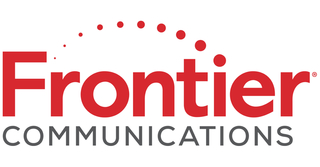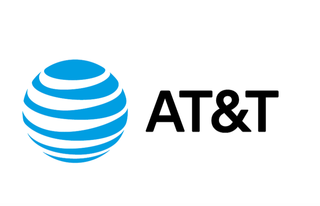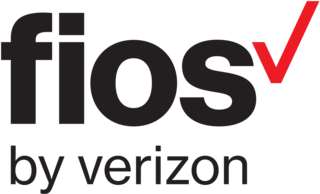7 Best Internet Providers
Today’s interconnected world calls for a reliable and fast Internet connection. The best Internet providers deliver fast speeds at affordable prices while providing customers with prompt, consistent service.
Read on to learn more about Money’s picks for the best internet service providers of 2022.
Our Top Picks for Internet Providers
- Spectrum – Best for bundling
- Xfinity – Best for streaming
- AT&T – Best for gaming
- CenturyLink – Best for DSL
- Cox Communications – Best for flexibility ISP
- Verizon Fios – Best for high speed
- ViaSat – Best satellite ISP
Why we chose it: We chose Spectrum as the best internet provider for bundling because of its affordable prices and bundling options for both cable TV and streaming.
- Easy-to-understand tiered pricing system
- Simple and affordable bundles
- No contracts or data caps
- Advertised rates climb after 1-year
- Additional $5/month fee for Wi-Fi router
- Plans starting at
- $49.99
- Money-back guarantee
- 30 days
- Early termination fee
- n/a
- Available in
- AL, AZ, CA, CO, CT, FL, GA, HI, ID, IL, IN, KS, KY, LA, ME, MD, MA, MI, MN, MS, MO, MT, NE, NV, NH, NJ, NM, NY, NC, OH, OR, PA, SC, TN, TX, VT, VA, WA, WV, WI, WY
Spectrum is an excellent choice for consumers who want cable TV in addition to Internet service. To bundle, users need to click on the services they’d like in their plan and input their area code to verify availability and download speeds. Bundling the two will net you a 5% discount on the company’s fairly-priced services.
Spectrum’s basic cable TV package includes over 125 channels, local channels and regional sports networks for $45 — one of the lowest prices among popular Internet service providers. Consumers can also bundle with the company’s streaming service if they aren’t interested in cable TV services and get more than 60 live channels at an affordable price.
Spectrum is the second-largest internet service provider in the US and is available in more than 40 states.
Why we chose it: We chose Xfinity as the best internet provider for streaming because of its large selection of plans with reliable and fast download speeds.
- Up to 1,200 Mbps (1.2 Gig) download speeds
- Consistent high placements on performance rankings
- Wide range of bandwidth options
- Substantial rate climb after the first year of service
- Automatically charges customers for exceeding the data cap
- Plans starting at
- $39.99
- Money-back guarantee
- 30 days
- Early termination fee
- $10 for each month remaining
- Available in
- AL, AZ, AR, CA, CO, CT, DE, DC, FL, GA, HI, ID, IL, IN, KS, KY, LA, ME, MD, MA, MI, MN, MS, MO, NH, NJ, NM, NY, NC, OH, OR, PA, SC, TN, TX, UT, VT, VA, WA, WV, WI
Xfinity internet by Comcast is a good choice if you’re considering cutting the cord or simply want a high-quality streaming experience. The company’s plans range from 50 Mbps to 1,200 Mbps in speed, depending on where you live, which means you’ll generally have a broader range of plans to choose from compared to other internet providers.
Available in 40 states, Xfinity is one of the most accessible internet providers in the US. Customer satisfaction is also above average, as shown by its favorable placements in the 2020-2021 ACSI Telecommunications Study and J.D. Power’s 2021 U.S. Residential Internet Service Provider Satisfaction Study.
Xfinity regularly ranks in the top bracket of Netflix’s ISP Leaderboard and has been in the top 3 of Ookla’s speed testing reports during 2021.
Why we chose it: We chose AT&T as the best internet provider for gamers because of its affordable and widely available fiber optic internet service, which is the ideal service type for online gaming.
- Much wider distribution than any other fiber internet provider
- Static monthly price, no rate hike after an initial promotional period
- Includes the AT&T ActiveArmor cyber security app
- Only provides the fastest speed available to your residence
- Installation fee of up to $99
- Plans starting at
- $55
- Money-back guarantee
- 14 days
- Early termination fee
- $10 for each month remaining
- Available in
- AL, AR, CA, FL, GA, IL, IN, KS, KY, LA, MI, MS, MO, NV, NC, OH, OK, SC, TN, TX, WI
AT&T is the largest fiber broadband provider in the U.S. by coverage area, reaching more than 35 million people.
AT&T’s fiber plans eschew standard industry practices by doing away with rate hikes, WiFi fees, data caps and contracts. After factoring in a 5% discount for signing up for autopay and paperless billing, the provider’s plans end up being surprisingly affordable for the speeds they offer.
It’s also worth mentioning that AT&T was the top-ranked provider in the most recent ACSI Telecommunications Study, with a 4% increase in customer satisfaction from 2020 to 2021. It also ranked first in J.D. Power’s 2021 U.S. Residential Internet Service Provider Satisfaction Study for the North Central and South regions.
Why we chose it: We chose CenturyLink as the best internet provider for DSL because it offers high speeds for a DSL provider and is available to many consumers, especially those in rural areas.
- Option to use your modem
- Unlimited data, no contracts
- Price lock ensures your rate does not increase
- Single DSL plan may vary significantly in speed based on location
- Ranks poorly for customer satisfaction
- Plans starting at
- $50
- Money-back guarantee
- n/a
- Early termination fee
- n/a
- Available in
- AL, AZ, AR, CO, FL, GA, ID, IL, IN, IA, KS, LA, MI, MN, MS, MO, MT, NE, NV, NJ, NM, NC, ND, OH, OK, OR, PA, SC, SD, TN, TX, UT, VA, WA, WI, WY
CenturyLink Internet stands out among its DSL competitors for its speed, availability and simplicity. The company offers a single DSL plan across 37 states that can reach speeds of up to 100 Mbps. This is noteworthy given the slower speeds of this type of internet service — DSL typically ranges from 3 to 35 Mbps.
CenturyLink’s DSL plan costs a flat rate of $50 per month, which is reasonable by DSL standards. The plan doesn't require signing a contract, has no data caps and comes with a price-for-life guarantee, which locks in your rate for as long as you stay a customer.
Customers can save $15 on CenturyLink DSL internet by using their own modem or router instead of renting it from the company.
Why we chose it: We chose Cox as the best internet provider for flexibility because of its StraightUp Prepaid Internet plan, a reasonably priced no-contract plan that customers can pay on a month-to-month basis without penalties or unexpected charges.
- Panoramic Wi-Fi option offers wall-to-wall Internet
- Three-year price guarantee
- Low upfront cost
- Slower speeds than other no-contract providers
- Customer satisfaction has mixed reviews
- 1TB data cap
- Plans starting at
- $29.99
- Money-back guarantee
- $30 days
- Early termination fee
- $10 for each month remaining
- Available in
- AZ, AR, CA, CT, FL, GA, ID, IA, KS, LA, MA, MO, NE, NV, NC, OH, OK, RI, VA
Cox internet’s prepaid plan is a good option for anyone looking for a no-strings-attached service. The plan requires no contract, credit check, or deposit and does not change rates after the first year. It costs $50 a month for up to 25 Mbps download speeds and includes a modem for no additional fee.
Cox’s internet service is notable for being in the top three fastest ISPs of Ookla’s speed testing results for 2021. Moreover, it has kept its spot in the top bracket of Netflix’s ISP leaderboard for quite some time.
Why we chose it: We chose Verizon as the best internet service provider for high speeds because of its impressive performance and consistently high ratings across several industry reports on customer satisfaction.
- Ranked as the fastest ISP in the country on various reports
- Advertised plan price is guaranteed for two years
- Straightforward pricing, no data caps
- Coverage limited to urban and suburban areas in the Northeast and Southeast
- TV packages are underwhelming
- Plans starting at
- $39.99
- Money-back guarantee
- 30 days
- Early termination fee
- $15 for each month remaining
- Available in
- DE, DC, MD, MA, NJ, NY, PA, RI, VI
Verizon internet has for years been the fastest ISP in the country, with other fiber providers trailing behind. It sits at the top of the Netflix ISP Leaderboard and other high-speed providers like Cox, Xfinity, and Optimum. Additionally, it has held the highest score on Ookla’s speed testing reports for years.
Verizon excels in customer satisfaction, being one of the few providers to sit above the average for customer satisfaction in the yearly ACSI Telecommunications Study. It’s also been one of the strongest performers on J.D. Power’s satisfaction studies, often blowing the competition out of the water in the East region.
Why we chose it: We chose ViaSat as the best internet provider for satellite internet because of its faster download speeds relative to other satellite providers and variety of service plans.
- Fastest traditional satellite internet provider
- No hard data caps
- No contract option
- Plans are more expensive than those of its main competitor
- Substantial price hike after the first year of service
- Plans starting at
- $99.99
- Money-back guarantee
- n/a
- Early termination fee
- $15 for each month remaining
- Available in
- All 50 states
ViaSat internet shows that although satellite internet is typically slow and laggy, there are providers who can offer high-speed service in the industry. In some regions, ViaSat can deliver speeds of up to 100 Mbps. As the company’s technology improves with the launch of its newest satellite hardware this year, consumers can expect its speeds to increase further.
Viasat enforces data caps but does not charge you for going past them. Instead, the company will throttle your speed. Said data caps are slightly higher than what you’d get with another satellite internet provider.
Other Companies We Considered
Some internet providers check all the marks we were looking for — tiered levels of bandwidth, high-speed plans, affordable rates — but have limited availability. Others were outclassed or fell short of being featured in our list above due to mixed performance reports and poor customer satisfaction.
Frontier Communications
- Offers affordable DSL internet in rural areas
- Fast and affordable fiber optic service
- History of negative customer satisfaction
- Sued by the FTC for allegedly misrepresenting internet speeds
Frontier was a strong candidate for gaming and DSL categories. Still, its lackluster customer satisfaction ratings in recent years held it back.
Google Fiber
- Faster speeds than nearly every other provider
- Reasonably priced fiber plans
- Coverage limited to a handful of urban areas
Google Fiber is one of the best internet providers out there — fast, affordable and with responsive support — but its availability is highly local, limited to only certain areas in 11 major metropolitan areas across nine states. If the provider does happen to be in your city, we recommend giving them a try.
HughesNet
- Plans are standardized nationwide
- Free installation
- Low maximum download speeds
HughesNet, ViaSat’s main competitor, was also a good candidate for our best satellite internet provider. Despite a weaker performance than ViaSat, Hughes net is more affordable and could be a better choice for those on a tighter budget.
Internet Providers Guide
The Internet has fundamentally changed the way we live. And the COVID-19 pandemic proved the importance of having access to reliable internet service.
Today, many of us spend a large portion of our days in front of a computer screen: scrolling through social media, attending virtual meetings, or playing video games with friends.
But because we all use the Internet for different purposes, not all our needs are the same. By learning about the different types of Internet services, you may be able to find out what’s right for you and narrow down your choices.
Types of Internet Providers
How you connect to the Internet depends on the technology employed by an internet service provider (ISP). Where some types of internet services are inherently faster, others may be slower but more affordable or more widely available.
Cable Internet service
Cable internet service is one of the fastest, most accessible and most affordable internet services today. Cable internet providers are commonly found in urban areas, where they operate over existing coaxial cable TV lines.
Cable’s advertised speeds range from as little as 10 Mbps to 1 Gbps (= 1000 Mbps). It’s similar to DSL in that the way your connection is established allows for both surfing the Web and watching TV simultaneously.
- A wide range of available speeds means most consumers will find a cable plan that suits them
- Ideal for internet users who want to bundle with cable TV
- Slowdowns may occur during peak times due to the shared use of cables
- It can be more expensive than fiber optic for the same speeds
Satellite Internet service
Satellite internet service works by transmitting data between geostationary communication satellites in the Earth’s orbit with satellite dishes on the Earth’s surface. These dishes must be positioned so that beams can signal back and forth from the dish to the satellite and back.
Because of the technical requirements of satellite internet, a certified technician is sent to install the equipment. The dish is generally installed on the roof of a home and connected to a modem located on the site.
- It can deliver high bandwidth in remote areas with otherwise sluggish internet service
- Recent innovations in the industry are improving service
- It can be unreliable due to minor obstructions and weather interference with the dish signal
- Much more expensive than dial-up, which is also found commonly in rural areas
Broadband Internet service
Mobile broadband is an umbrella term for wireless internet service provided by a various devices such as USB wireless modems, portable modems, tablets and smartphones. It comes in 3G, 4G, and now 5G varieties, which are being deployed across the country and can provide download speeds of around 130 to 240Mbps — much higher than older generation devices.
- Innovations due to 5G have produced faster and more reliable service
- It works especially well for those who are frequently moving
- Expensive compared to other conventional high-speed internet packages
- Restrictive data caps limit what you can do online
Fiber optic Internet service
Fiber optic internet service is the newest kid on the ISP industry block, having garnered much attention for its technological feats but still lacking widespread adoption. Fiber works by using high-speed cables made out of thin transparent fibers of glass or plastic that reach residents’ homes. The technology behind the service makes it possible to reach speeds far beyond what other types of internet service can manage.
- Unparalleled performance: extremely efficient, reliable, and fast
- Symmetric download and upload speeds allow for easy sharing of large files
- Highly localized coverage, limited availability even in many metropolitan cities
- More expensive than every other type of internet service other than cable
DSL Internet service
DSL (Digital Subscriber Line) internet service uses wireless technology to transmit data over existing copper telephone lines. DSL works within telephone line frequencies, which means it's possible to make phone calls and use the Internet simultaneously, unlike dial-up.
DSL internet access is widely available because it’s built over telephone lines. Additionally, customers get their own, dedicated circuit which isn’t affected by neighboring subscribers, as it happens with cable internet.
- Much more affordable than cable and fiber while still providing broadband speeds
- More widely available than cable internet, can be found in rural areas
- The further away you are from the nearest telephone facility, the weaker your connection will be
- Slower than many other types of internet service
Dial-up
Dial-up was the first type of internet service to be offered commercially. To establish a connection to the Internet, a telephone line is connected to a 56k modem in a computer. Then, the other end of the line is installed into the phone jack.
Dial-up is often seen in rural areas due to its widespread availability. It’s occasionally seen in households with very low bandwidth usage.
- Most affordable type of internet service
- Available nearly everywhere
- Slowest of all the major types of internet service
- Cannot use the phone line and internet service simultaneously
How to find the best Internet provider
Many of us don’t have much choice in what Internet provider we pick due to how large companies have carved up the country to avoid competition. In fact, in many areas, your choice may boil down to picking one of two cable companies. Nonetheless, consider the following steps when choosing a provider.
Identify which providers are available in your area
Barring mobile broadband and satellite internet providers, most companies do not offer coverage nationwide. Rural areas, in particular, are often limited to one of these two service types due to the distance between them and the main distribution centers in urban areas. Unfortunately, this means that the best internet service provider in one area may not be available in yours.
You can save time by starting your search for internet providers with our reviews, each of which has the provider’s state availability. Clicking on their availability link will take you to their website, where you may input your zip code and see if the service is available in your area.
Identify your internet needs
Most activities don’t demand very high bandwidth. For example, video chats, online video games and non-HD streaming-only need speeds of 1, 3, and 4 megabits per second (Mbps).
However, when multiple people use the same connection, you may feel the impact on your end. This is especially true for bandwidth-heavy activities like 4k streaming and downloading or uploading large amounts of data.
| Activity | Minimum Bandwidth* | Recommended Bandwidth** |
| 1 Mbps | 1-3 Mbps | |
| General browsing and social media | 1 Mbps | 5-10 Mbps |
| Standard streaming | 3-4 Mbps | 10-15 Mbps |
| High-definition streaming | 5-8 Mbps | 25+ Mbps |
| Ultra high-definition (4k) streaming | 25 Mbps | 50+ Mbps |
| Standard video conferencing | 1 Mbps | 3-5 Mbps |
| High-definition video conferencing | 6 Mbps | 10-15 Mbps |
| Downloading large files | 10 Mbps | 30+ Mbps |
| Online multiplayer gaming | 4 Mbps | 25+ Mbps |
* According to the FCC Broadband Speed Guide
** For a comfortable experience in a household with other connected devices
Note that the speeds providers advertise on their websites are based on best-case scenarios. The speeds you get may not be up to par with these numbers, especially during peak hours — weeknights from 7-11 PM — when many people are simultaneously use the internet provider’s service.
Determining your monthly budget
How much you’ll pay depends on your location and bandwidth needs. According to USTelecom, the average cost for the most popular speed tiers of broadband internet in the US was $48.42/mo in 2021. In some areas, the average cost of internet plans may be much higher, up to $100 per month or more.
Most internet providers offer high-speed internet plans (i.e., over 25 Mbps) that start as low as $20/month, but consider that taxes, fees and equipment costs may add from $10 to $20 more to your monthly Internet bill.
Consider how much money you can set aside for Internet service each month when looking at different plans. Remember that many everyday Internet activities do not use much bandwidth by themselves — you may not need to pay over $100 for that Gigabit connection plan when you can spend much less and still enjoy a smooth experience online.
Look for bundling options
Internet providers that offer cable TV and phone service almost always have pre-made or customizable bundles with their internet service. Bundles are an easy way of saving money for those who need or want these services. They’re also an easy way for people to lose money, as many will see the lower price points on the bundle and default to it because of how “convenient” these services are.
Ask yourself how often you’ll be using these services before getting them in a bundle with your internet service. It’s usually not worth bundling if you aren’t keeping up to date with series currently running on TV or need a phone line for a specific reason. Even if it costs only a few dollars more than the internet service by itself, the monthly price of your cable TV will likely increase dramatically after the end of your plan’s promotional period.
Comparison shop
As with any product or service, consumers should consider multiple options and compare them to one another before deciding what to spend their money on. Even if your internet options are limited to one or two providers, you should go through their selection of plans, carefully read the fine print on their contracts, and look up as much information as possible.
Do they have a history of bad customer service? Do subscribers lose internet access often? Do they enforce data caps on all subscribers during peak hours? These are some of the questions you should ask when looking at internet service providers.
If you would like for a nearby fiber optic provider to expand into your community, consider contacting them. They may also have an online list for those who would like to sign up to be notified in case their service becomes available in your area.
Best Internet Providers FAQ
What internet speed do I need?
What internet providers are in my area?
What is a good internet speed for gaming?
Most video game console manufacturers recommend that users have at least 3 Mbps of download speed and 0.5 Mbps to 1 Mbps of upload speed. This might seem relatively low, but keep in mind that gaming doesn't demand a lot of bandwidth because most of the data already resides on your console of choice.
However, there are other elements of internet service that can affect your gaming experience. Gamers who download many of their games, such as those playing on a PC or Mac, will want much higher download speeds. Additionally, upload speed can affect a game's latency, which is why many gamers opt for fiber optic internet over cable due to its symmetric download and upload speeds.
What internet speed do I need for streaming?
What is the fastest internet provider?
How We Chose the Best Internet Providers
We looked at 20 internet service providers and evaluated them based on cost, performance, and customer experience. We considered availability a baseline when looking at internet providers but did not weigh heavily in favor of those with broader coverage. Moreover, because not all internet service types are widely available, we considered some providers separately for their categories.
The internet providers included in our list scored high in the following categories:
Cost: We compared each provider’s variety of plans, installation fees, equipment fees, early termination fees and data caps.
Performance: We referred to two resources for evaluating internet speeds: the Netflix ISP Leaderboard, which compares speeds during prime time viewing sessions, and Ookla’s speed testing reports for Q3 and Q4 of 2021, which ranks network performance based on a score that incorporates each internet provider’s download and upload speed.
Customer Experience: We evaluated customer experience based on customer-friendly practices, such as extended money-back guarantees and studies into customer satisfaction with individual internet providers, including the 2020-2021 ACSI Telecommunications Study and the J.D. Power 2021 U.S. Residential Internet Service Provider Satisfaction Study.
Summary of Money’s Best Internet Providers
- Spectrum – Best for bundling
- Xfinity – Best for streaming
- AT&T – Best for gaming
- CenturyLink – Best for DSL
- Cox Communications – Best for flexibility ISP
- Verizon Fios – Best for high speed
- ViaSat – Best satellite ISP













